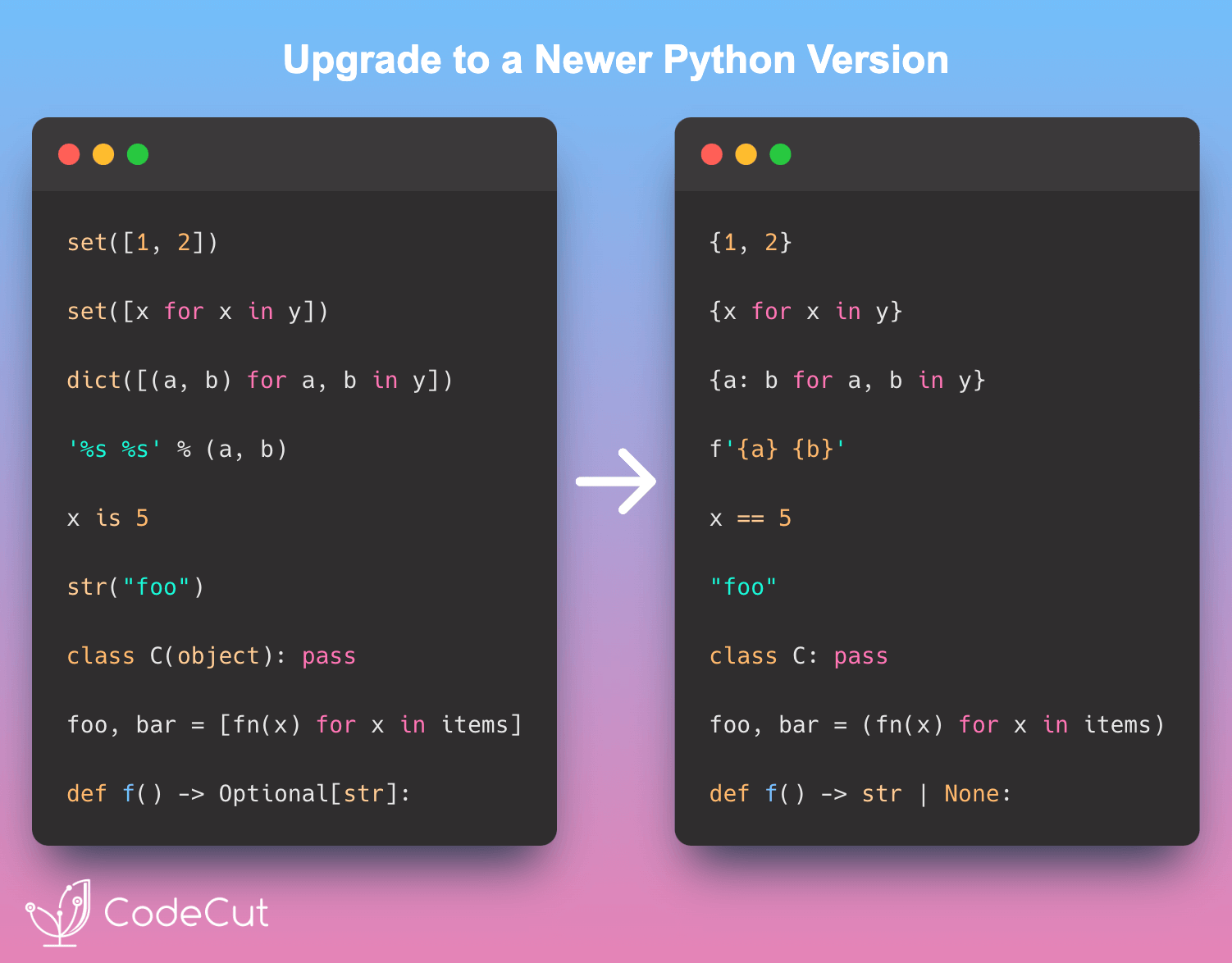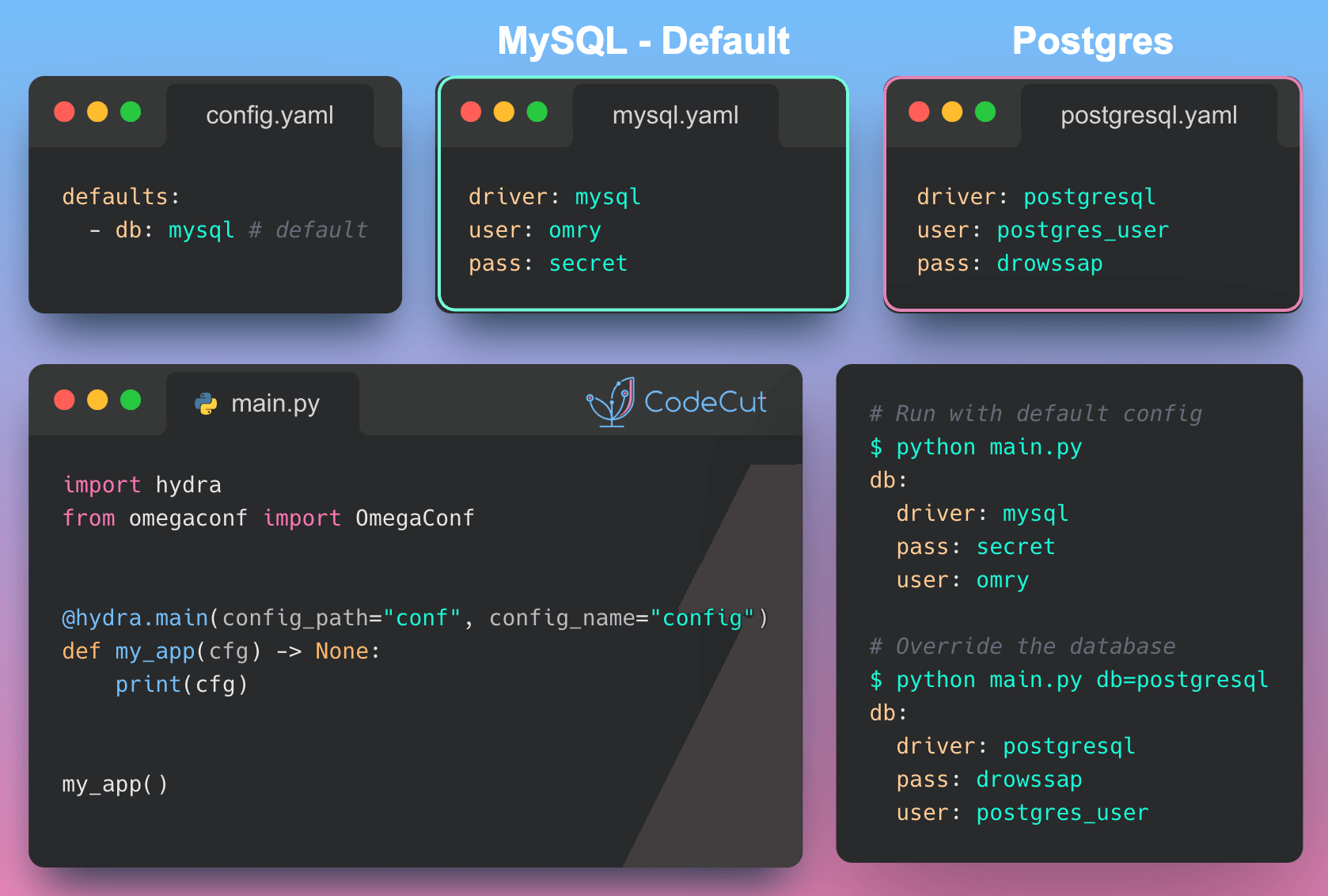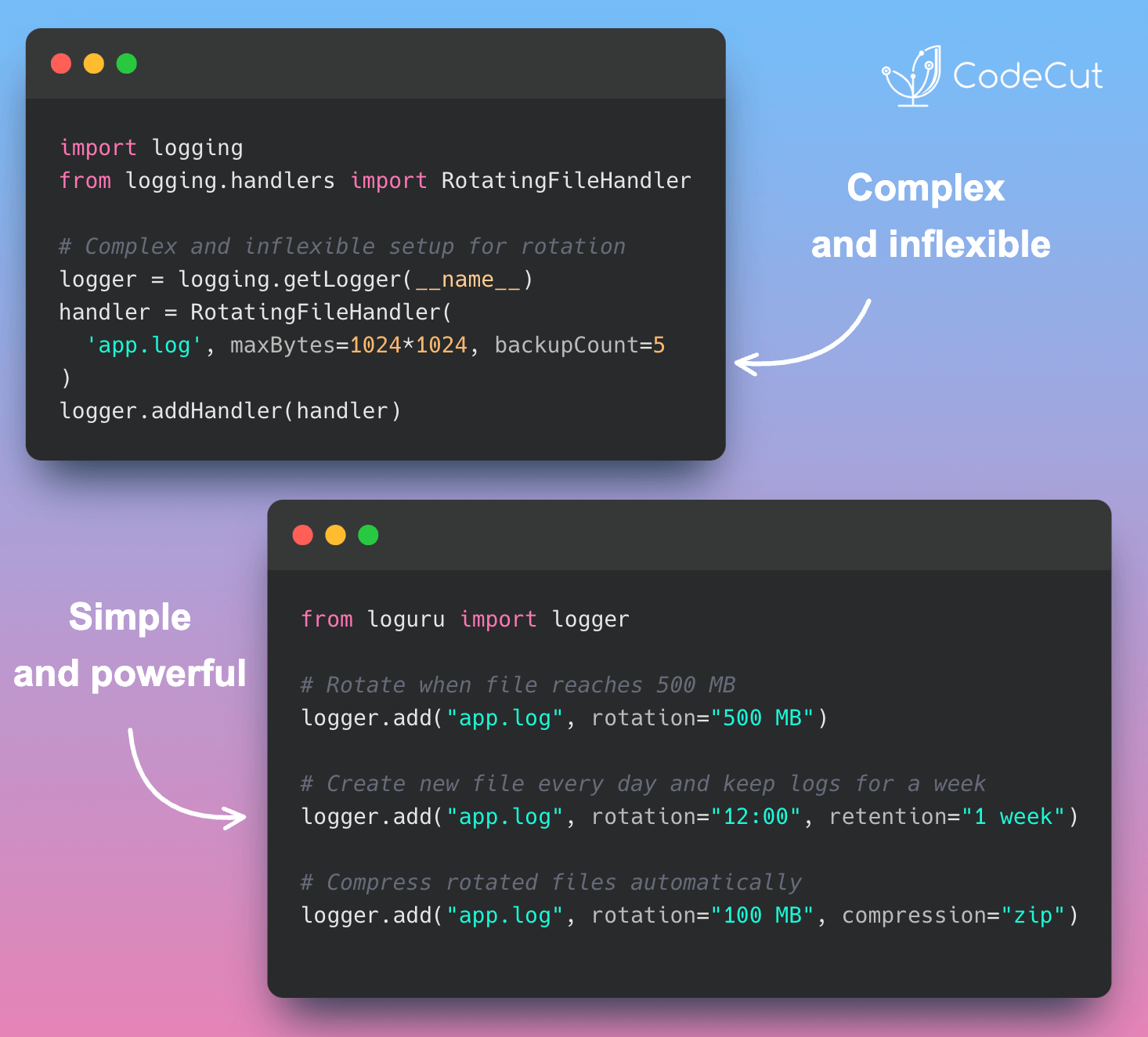Outdated syntax accumulates over time, creating technical debt. However, manually updating syntax across large codebases is extremely time-consuming and is prone to mistakes.
pyupgrade automates this process by scanning your code and applying modern syntax upgrades. It’s designed to work as both a standalone tool and a pre-commit hook, making it easy to integrate into your development workflow.
Let’s look at some before-and-after examples to see how pyupgrade can improve your code:
Simplifying Set Creation
# Before
set([1, 2])
# After
{1, 2}pyupgrade replaces the old set() constructor with a more concise set literal.
Set Comprehensions
# Before
set([x for x in y])
# After
{x for x in y}It converts list comprehensions inside set() to set comprehensions.
Dictionary Comprehensions
# Before
dict([(a, b) for a, b in y])
# After
{a: b for a, b in y}List comprehensions creating key-value pairs are converted to dictionary comprehensions.
f-strings
# Before
'%s %s' % (a, b)
# After
f'{a} {b}'Old-style string formatting is updated to use modern f-strings.
Equality Comparisons
# Before
x is 5
# After
x == 5Incorrect identity comparisons with literals are fixed to use equality.
Unnecessary Conversions
# Before
str("foo")
# After
"foo"Redundant string conversions are removed.
Class Definitions
# Before
class C(object): pass
# After
class C: passExplicit inheritance from object is removed in Python 3.
Generator Expressions
# Before
foo, bar, baz = [fn(x) for x in items]
# After
foo, bar, baz = (fn(x) for x in items)List comprehensions used in unpacking are converted to generator expressions for better memory efficiency.
Type Hinting
# Before
def f() -> Optional[str]:
# After
def f() -> str | None:Type hints are updated to use the new union syntax introduced in Python 3.10.





